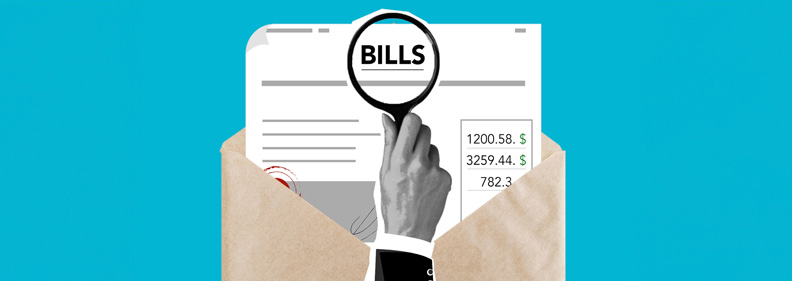How Much Do Au Pairs Cost in USA?Au Pair Meaning | Au Pair Costs | Au Pair vs. Nanny | Au Pair Program | Au Pair Success Tips | What to Ask Before Hiring an Au Pair | Au Pairs by Country | Au Pair Agencies
Au Pair Cost: How Do I Pay My Au Pair?A host family asks, "How much do au pairs get paid?" The minimum weekly stipend for au pairs in the United States is $195.75. This stipend is set by the U.S. Department of State and applies to all au pairs participating in the J-1 Exchange Visitor Program and it is subject to change without notice. It is important to note that this is the federal minimum stipend requirement, and may be higher in certain states or cities. Au pairs may negotiate their weekly stipend with their host family employer, and some families may choose to offer a higher stipend based on their own considerations. Host families pay their au pairs directly. To host an au pair in America, the cost varies depending on several factors, such as the au pair's prior experience, the state and city in which you live, the US Au Pair Program requirements, and the au pair agency you work with. The minimum au pair weekly stipend is intended to be pocket money, and is determined by the U.S. Department of State's regulations for the Au Pair Program, which is based on the Department of Labor's Fair Labor Standards Act. In addition to the weekly stipend, host families are responsible for providing room and board to their au pair. This includes a private bedroom and access to meals within the household. It's important for host families to keep in mind that there may be additional costs associated with hosting au pairs, such as program fees that include the au pair's inbound airfare, healthcare coverage, and training expenses. These costs can vary depending on the au pair services or agency you choose to work with. It's recommended to thoroughly research and discuss all costs and financial obligations with your chosen agency such as GreatAuPair USA to ensure a clear understanding of the total expenses involved. Please note that regulations for a host family, au pair costs, and stipend amounts may change over time, so it's essential to consult the U.S. Department of State's official website or contact GreatAuPair USA for the most up-to-date and accurate information regarding the cost of hosting an au pair in the United States. How Much Should I Pay My Au Pair?
The amount you should pay your au pair depends on various factors, including the au pair's prior experience, childcare training, the country you live in, the number of working hours, the cost of living and minimum wage in your area, and the regulations or guidelines set by the au pair programs or agency you are working with in your country. Au pair wages may also vary depending on whether you chose a Standard Au Pair, an Educare Program Au Pair or a Premiere Au Pair with more experience. Here are some general considerations to help you determine a fair and reasonable stipend for your au pair:
Lastly, it is essential for your family to consult the specific regulations and guidelines of your live in au pair or designated au pair agency, as they will provide specific requirements regarding the legally applicable minimum au pair stipend. This will help ensure that you are offering fair compensation within the framework of the program. Au Pair Childcare Tax Credit
Reduce Au Pair Costs with a Tax CreditAmerican host families may be able to deduct up to $6,000 in taxes from their program fee if they have two or more qualifying dependent children who receive care from their au pair or up to $3,000 if they have only one qualifying dependent child. Offset Au Pair Program CostsThe Au Pair Childcare Tax Credit is a tax credit available to eligible families in the United States who hire an au pair to provide childcare services. It is designed to help offset the costs associated with hiring an au pair. Reduce Au Pair Costs with Dollar-for-Dollar Tax CreditUnlike a rebate or subsidy, a tax credit is a direct reduction in the amount of taxes owed by the taxpayer. It reduces the total tax liability, dollar-for-dollar, rather than providing a reimbursement or subsidy after the expenses have been incurred. The Au Pair Childcare Tax Credit allows eligible families to claim a portion of their qualified childcare expenses as a tax credit on their federal income tax return. The specific details and eligibility requirements of the tax credit may vary, so it is important to consult the Internal Revenue Service (IRS) or a qualified tax professional for the most up-to-date information and guidance. It's worth noting that tax credits are subject to specific rules and limitations, including income thresholds, maximum credit amounts, and qualifying criteria. Eligible expenses generally include the costs of childcare services provided by an au pair, subject to certain limitations and restrictions. In order for a family to take advantage of the Au Pair Childcare Tax Credit, families typically need to meet specific requirements set by the IRS. These requirements may include providing accurate documentation of the childcare expenses, au pair or Educare programs, meeting the criteria for eligible dependents, and meeting any income or filing status requirements. As with any tax-related matter, it is advisable to consult with a tax professional or the IRS directly to understand the specific details and requirements of the Au Pair Childcare Tax Credit based on your individual circumstances. They can provide personalized advice and guidance to help you navigate the tax credit and ensure compliance with applicable tax laws. How to Qualify for The Childcare Tax Credit
Provider Identification Test.You must identify the care provider on your tax return. (See Care Provider Identification Test) If you exclude or deduct dependent care benefits provided by a dependent care benefit plan, the total amount you exclude or deduct must be less than the dollar limit for qualifying expenses (generally, $3,000 if one qualifying person was cared for or $6,000 if two or more qualifying persons were cared for). (If two or more qualifying persons were cared for, the amount you exclude or deduct will always be less than the dollar limit because the total amount you can exclude or deduct is limited to $5,000. See Reduced Dollar Limit under How To Figure the Credit, later.) These tests are presented in Figure A and are also explained in detail in this publication. Understanding Au Pair Costs
Au Pair Program FeesThe cost of hosting an au pair begins with program fees, which are paid directly to the au pair agency. These fees cover the services provided by the agency, including recruiting and vetting the au pairs, matching the host family with an au pair, conducting background checks, and facilitating the necessary paperwork for the au pair's arrival. The program fees can vary between different au pair agencies and are typically higher for the more comprehensive programs. Educational ComponentOne unique aspect of the au pair program is the educational component. Host families are responsible for contributing up to $500 per year towards their au pair's enrollment in an accredited post-secondary institution. This education cost is in addition to the weekly stipend, room, and board provided to the au pair. Minimum Weekly StipendHost families are required to pay their au pair a minimum weekly stipend. The minimum stipend is determined by the U.S. Department of State and is designed to ensure that au pairs are compensated fairly. As of the latest information available, the U.S. Federal minimum weekly stipend is $195.75. It's essential to note that this stipend is subject to change without notice, and compensation higher than the minimum state and federal requirement is recommended. Room and BoardIn addition to the weekly stipend, host families must provide room and board (food) for their au pair. This includes a private bedroom for the au pair within the family's home and access to food within the household. The cost of room and board varies depending on the region and the specific living arrangements. Additional Costs Associated with Hosting an Au Pair
Program Costs. While not the case with the US Au Pair Program, some placement services in other countries may charge an additional fee if a host family has more than one child. Match Processing Fee. The match processing fee is associated with finding the right au pair for your family. This fee covers the costs related to processing applications, conducting background checks, and facilitating the matching process. It's typically paid as part of the program fees. International Travel Costs. The program fee paid by host families covers the au pair's airfare from the au pair's home country to the United States. Au Pair's Arrival Expenses. Upon the au pair's arrival in the United States, host families are responsible for their au pair's transportation from the arrival airport to the family's home. This expense typically includes air and or ground transportation costs. Car and Auto Insurance Expenses. If you require your au pair to drive your kids to school each week or take your kids to practice, you will need to provide a car and appropriate insurance coverage. Costs related to your car and insurance are not covered in your program fee. Discounts and SavingsWhile the cost of hosting an au pair may seem significant, there are several ways that host families can save or receive discounts:
Consider the Benefits of Hosting an Au Pair
While it's essential to understand the costs associated with hosting an au pair, it's equally important to consider the benefits. In addition to agency support, au pairs provide an extra set of hands, responsible child care for your kids, individualized, and flexible child care while offering a unique cultural exchange experience for both the host family and the au pair. The quality time spent with the children and the support provided by au pairs can be invaluable for many families. Ultimately, the decision to host an au pair should take into account not only the cost but also the many advantages of the program. |
| Return to Help |
| Return to FAQs |







